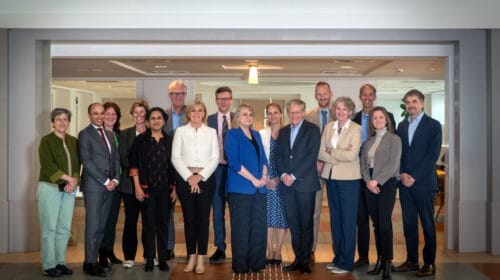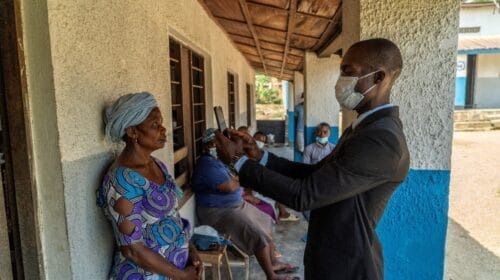As nation bleeds, North also wants justice

The heroic Nigeria youths in the two weeks long #ENDSARS protest which erupted like a hurricane in most Nigerian cities, have started a healing process, in a way. The first, being the breaking of a 25-year-old silence to myriad of injustices in the land.
The second was breaking the cycle of ethno-religious narratives encouraged by unscrupulous politicians, as if Nigerians from Northern and Southern Nigeria are divided on the question of justice and good governance. The youths from most of the Northern states disappointed some politicians when they launched #EndInsecurity protests in Kaduna, Kano, Gombe, Plateau, Adamawa, Katsina, Niger, Abuja, etc.
The Northern youths have creatively, adapted the protest to the realities of Northern Nigeria. Before the redemptive action of the now resurgent Nigerian youths, the polity has been toxic and corrosive, centered mainly on various propositions on the structure of Nigerian State and the louder voices being the call for Restructuring of the Federation while some fringe voices agitate for the dissolution of the union.
On October 12, a group of Northern intellectuals and political activists under the aegis of Friends of Democracy sent a memo to the Constitution Review Panel of the National Assembly echoing what several opinion leaders, largely from the south and middle belt have been agitating for. The group even went further by advocating 100 per cent resource control by the state, as it was under the independence constitution of Nigeria and a return to the 1967 state structure in Nigeria.
Amongst the signatories were Alhaji Othman Tofa, Ambassador Fatimah Ballah, Mr. Sam Nda-Isaiah, Prof. Jibrin Ibrahim, Dr. Usman Bugaje, etc. When the story broke in the media, the dominant reportage in a section of the press, was that “some southern leaders suspected the Friends of Democracy’s intention, given the fact that several authors of this new memo are probably from the same ethnic group from President Buhari whose clannish and lopsided appointments have been generally perceived as a corporate Fulanization agenda.
Perhaps, if the polity has not been broken along North versus South as the major gladiators have tried to make it particularly in the past seven years, no one should have expressed suspicion at the genuine intentions of the Friends of Democracy. Historically, the political leaders of Northern Nigeria were federalists who believed in resource control and a Police Force controlled by the regions, at least that is what the archives say for those of us who were not around at the Lancaster Conference of 1958.
According to the extract of an editorial of Times Magazine dated 10th November 1958, “Awolowo suggested creating three new states. The North’s Sardauna not wishing to relinquish any of his territory refused the idea, nor did he like the idea for a centralized police force under the Federal Government .
At the conference, Northern delegates insisted each region should have its police, the acceptance of the existence of the Federal Police side by side with the Regional Police was only an act of compromise conceded to accommodate the Southern delegates who were routing for a Federal Police, (This is history, not politics).
Ironically too, the overthrow of the Independent constitution which is seen by the restructuring advocates as the model for Nigeria’s federalism was caused by a military coup led by officers, predominantly from the South, East and not Northern Nigeria.
It will take Yakubu Gowon (a Northern officer) after the countercoup of July 1966 to begin a slow process of decentralization with the creation of 12 States. Gowon also used a lot of the political leaders of the First Republic and civil servants who tempered the command structure of the military government.
The 1975 Murtala Mohammed coup steered the country away from the moderate approach of Gowon, through a purge of the civil service, judiciary and other vital institutions of state that provided balance. The new Nigeria rulers, the1975 coupists, used the same mantra of anti-corruption that the coupists of January 1966 used. These 1975 coupists reinforced over centralization, fueled by cheap oil revenue.
Like federalism, there are many Northerners committed to the ideals of national unity and inclusiveness as much as their southern counterparts, the body language, actions and clannish innuendoes of Buhari notwithstanding, that is who Buhari is; that is not what the North is.
Northerners want a good president regardless of where he or she comes from; this has been demonstrated many times in the past, when the people of Kano voted for Bashorun Abiola, a Yoruba man on the platform of Social Democratic Party (SDP) against their son from Kano State, Alhaji Bashir Tofa, the presidential candidate of the National Republican Convention (NRC) in the 1993 general election. Alhaji Dr. Abubakar Rimi, Sule Lamido and others made this happen in Kano and Jigawa.
The North repeated this when the North, just like the South-East and South-South, made Obasanjo President in the 1999 presidential election when his ethnic base, South-West massively rejected him. Similarly, too, the desire for a return to parliamentary system which has been misconstrued as an advocacy in which Northern Nigeria is not interested, is an error.
As a matter of historical fact, the architect of Nigeria’s Presidential System is President Olusegun Obasanjo and the chief proponents of the presidential system were southwest delegates in the 1978 constituent assembly; like Chief Richard Akinjide and the chief drafter of the constitution, Chief Rotimi Williams. Educated delegates from the North such as Dr. Ibrahim Tahir argued vigorously for a parliamentary system. The North accepts and believes in Nigeria political pluralism and true federalism dictated by Nigeria’s multi-ethnic composition.
The North desires accountable and transparent government like all Nigerians. It desires efficient political management as provided by her leaders in the first republic whose lifestyles were decent and austere.
In Sardana’s North, Sharia was not a tool in the hand of the corrupt and the inept to wipe up cheap support through hollow religious rhetoric. No one lost his life or a limb through the decision of suspicious court and no one was sentenced to death for making a song. Christians and Muslims worked and lived peacefully, and both religions were represented in government.
Damning all the shenanigans of the Dividers-in-Chief of the past seven years which has worsened particularly in the past five years, the actions of the EndSARS movement and the EndINSECURITY protests in Northern Nigeria, have helped to again refocus our politics on important issues beyond ethnic divide. It would have been tragic if what some political leaders wanted to happen had happened; i.e. protest in South and silence in the North.
•Olwepo-Hashim was the presidential candidate of the Peoples Front in the 2019 elections
SHOCKING LIFE STORY!!!
Abuja Man reveals (FREE) secret Fruits that Increased his Manhood size and Lasting Power in 5days…
CLICK HERE TO GET IT!!!




